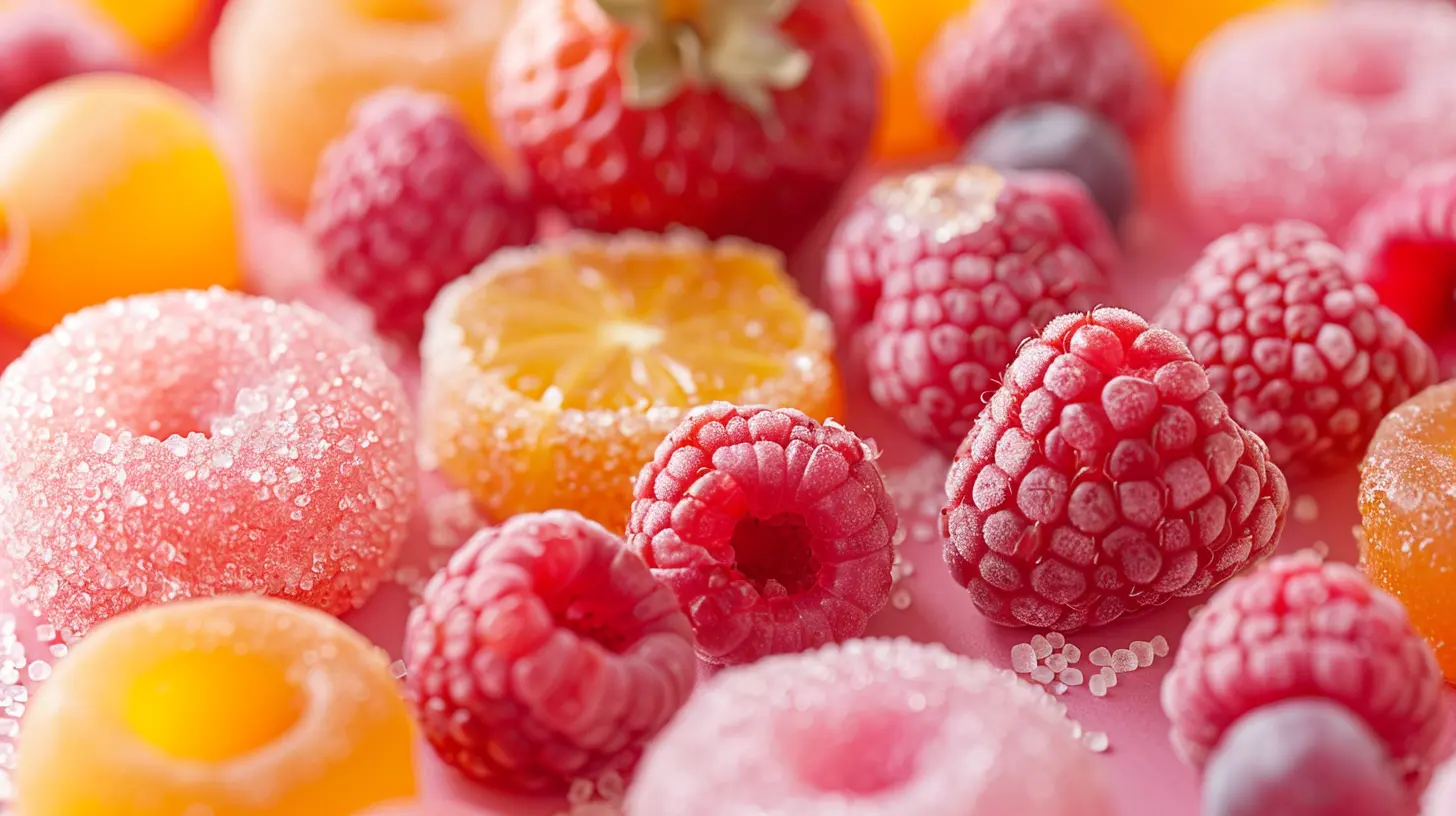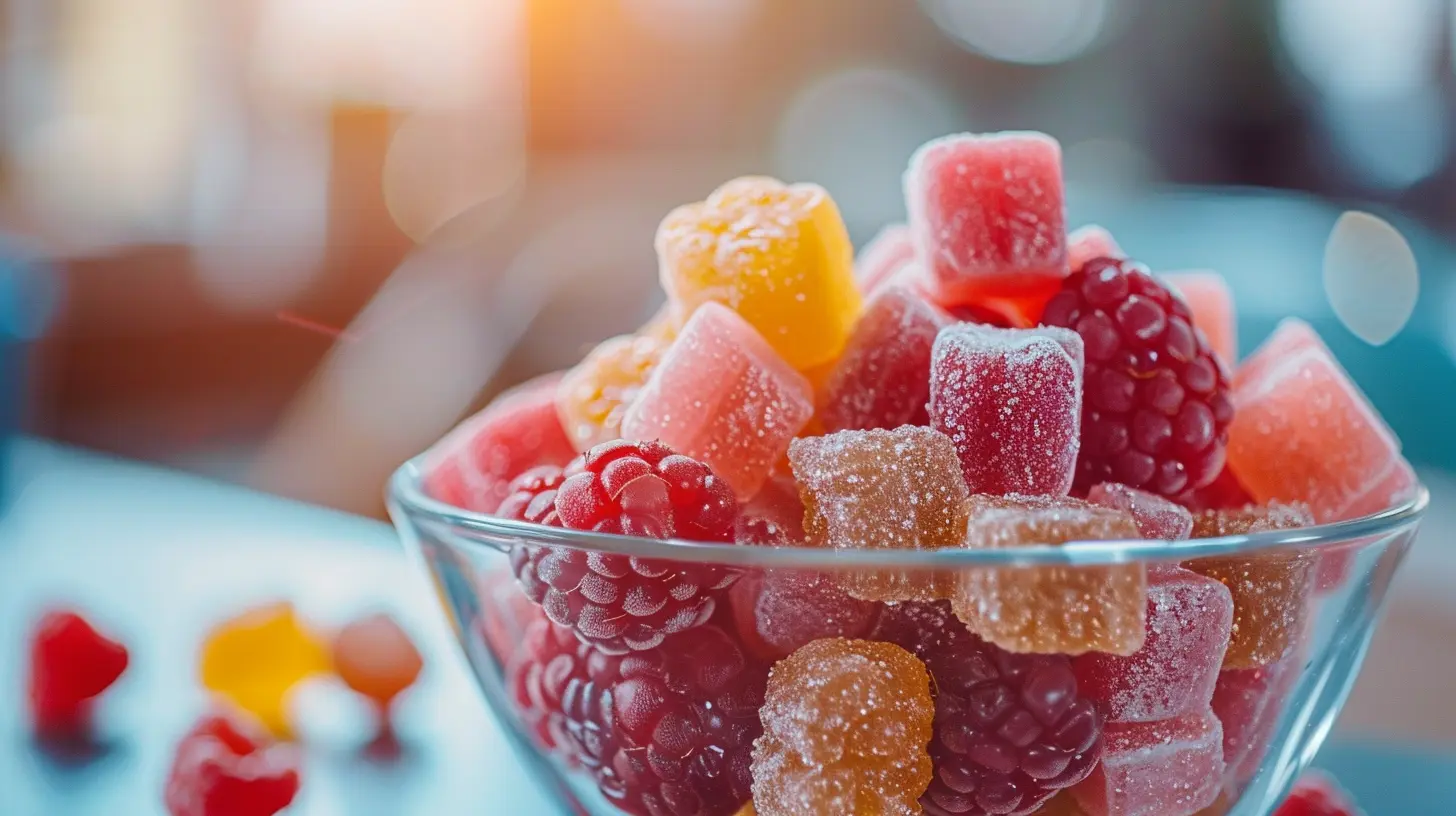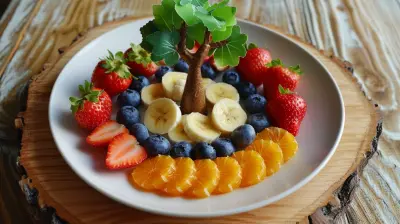The Hidden Sugar in Common Kid's Snacks
22 September 2025
As parents, we all want the best for our kids. We make sure they eat their fruits and veggies, get enough sleep, and stay active. But what if I told you that some of the so-called "healthy" snacks we give our children are packed with hidden sugars? Yes, even the ones labeled as "organic," "natural," or "low-fat" can be sugar bombs in disguise.
Sugar sneaks into our kids' diets in ways we don't always see. It hides behind different names, gets mixed into supposedly healthy options, and can contribute to long-term health problems. So, let's uncover the truth about the sneaky sugars lurking in our children's snacks and what we can do about it.
Why Too Much Sugar is a Concern
Before we dive into the snacks themselves, let's talk about why sugar is such a big deal. Sugar isn’t just about cavities and hyperactive kids bouncing off the walls—it has deeper, more serious effects on health.1. Increases the Risk of Obesity
Excess sugar turns into fat when the body doesn’t use it for immediate energy. Many high-sugar snacks provide empty calories, meaning they don’t have the nutrients kids need. Over time, this can lead to childhood obesity, which is a growing concern worldwide.2. Can Lead to Type 2 Diabetes
A high-sugar diet forces the body to release extra insulin. Over time, this constant demand can contribute to insulin resistance, a key factor in Type 2 diabetes. Kids are now developing this condition at alarming rates due to diets loaded with hidden sugars.3. Affects Brain Function and Mood
Ever noticed how your child crashes after a sugar rush? Sugar causes blood sugar spikes and drops, leading to mood swings, irritability, and trouble focusing. Some studies even suggest a link between high sugar intake and an increased risk of mental health issues in children.4. Weakens the Immune System
Too much sugar can suppress the immune system, making kids more susceptible to common colds, flu, and infections. A strong immune system starts with a healthy diet, and cutting back on hidden sugars is a great step.
The Sneaky Sugar Hiding in Popular Kid's Snacks
Many kid-friendly snacks seem harmless at first glance, but when you check the ingredients, you’ll find shocking amounts of sugar. Sometimes, it’s listed under different names—fructose, glucose, dextrose, maltose, syrup, or even "evaporated cane juice." Let’s take a look at some of the worst offenders.1. Granola Bars
Granola bars are marketed as a healthy snack option, but most are just glorified candy bars. Many contain high-fructose corn syrup, honey, or brown rice syrup, making them loaded with sugar. Some popular brands have as much sugar as a small chocolate bar!Smarter Swap: Try homemade granola bars or look for ones with minimal added sugar and whole ingredients.
2. Flavored Yogurt
Yogurt is packed with probiotics and protein, but the flavored varieties often contain a shocking amount of sugar. Some small yogurt cups have more sugar than a donut!Smarter Swap: Opt for plain yogurt and add fresh fruit or a drizzle of raw honey instead.
3. Fruit Snacks and Roll-Ups
Just because "fruit" is in the name doesn’t mean it’s healthy. Most fruit snacks are made from fruit concentrate, which strips away fiber and leaves behind mostly sugar. They’re basically candy in disguise.Smarter Swap: Choose real fruit! Fresh or dried fruit without added sugars is a far better option.
4. Breakfast Cereals
A bowl of cereal might seem like an easy, quick breakfast, but many cereals marketed to kids contain an alarming amount of sugar—sometimes more than dessert! Even "whole grain" or “multigrain” cereals often contain hidden sweeteners.Smarter Swap: Look for cereals with no added sugars or opt for oatmeal sweetened naturally with fruit.
5. Apple Sauce and Fruit Pouches
You’d think applesauce would just be, well, apples—but many versions contain added sugars, even when labeled as "natural" or "no artificial sweeteners."Smarter Swap: Stick to unsweetened applesauce or mash up fresh fruits instead.
6. Juice Boxes and Flavored Drinks
Juice might sound like a healthy choice, but many juice boxes contain just as much sugar as soda. Even “100% fruit juice” lacks the fiber found in whole fruit, leading to rapid blood sugar spikes.Smarter Swap: Water is the best option, but if your child loves juice, try watering it down or offering fresh fruit-infused water.
7. Flavored Oatmeal Packs
Instant oatmeal seems healthy, but the flavored varieties are often packed with sugar. Some even have more added sugars than a chocolate chip cookie!Smarter Swap: Go for plain oats and add your own natural sweeteners like banana slices or cinnamon.
How to Spot Hidden Sugars in Snacks
Manufacturers know that parents are becoming more aware of sugar, so they use sneaky tricks to hide it in ingredient lists. Here are some tips to help you catch those hidden sugar traps:1. Know the Different Names for Sugar
Sugar doesn't always go by "sugar." It disguises itself under names like:- High-fructose corn syrup
- Cane juice
- Dextrose
- Maltose
- Rice syrup
- Agave nectar
If you see multiple types of sugar in one product, chances are it’s loaded with unnecessary sweetness.
2. Check the Nutrition Label
Look at the “Total Sugars” in the nutrition facts. If it's over 5g per serving, take a closer look. The American Heart Association recommends that kids get no more than 25 grams (6 teaspoons) of added sugar per day—but many snacks contain way more than that in just one serving!3. Watch Out for "Health" Buzzwords
Words like "organic," "natural," "fat-free," or "gluten-free" don’t necessarily mean low sugar. A snack can be organic and still have just as much sugar as a regular candy bar.
Healthy Snack Alternatives
You don’t have to deprive your kids of delicious snacks—just make smarter choices! Here are some healthier alternatives that taste great and won’t overload them with sugar:- Homemade trail mix (nuts, seeds, and a bit of dark chocolate)
- Chia pudding made with unsweetened almond milk and fresh fruit
- Hard-boiled eggs with a sprinkle of sea salt
- Vegetable sticks with hummus
- Homemade popcorn with just a little butter and sea salt
- Nut butter on whole wheat toast instead of sugary spreads
- Smoothies made with whole fruits, veggies, and unsweetened yogurt
Final Thoughts: Small Changes, Big Impact
We may not be able to eliminate sugar from our kids' lives entirely, but we can take steps to reduce hidden sugars in their diets. Reading labels, choosing whole foods, and making smarter swaps can make a huge difference in their long-term health.Remember, kids don’t need sugary snacks to be happy. Simple, nutritious foods can be just as delicious—and way better for their well-being. As parents, we have the power to help them develop healthy habits that will benefit them for years to come.
So next time you’re at the grocery store, take a second look at those snack labels. A few small changes today can set the foundation for a lifetime of healthier choices.
all images in this post were generated using AI tools
Category:
Healthy EatingAuthor:

Kelly Snow
Discussion
rate this article
1 comments
Jessamine McMahan
Who knew our snack time was really a sugar party in disguise? It's like finding out that your kid's favorite cookies are secretly hosting a sweet rave! Time to trade in those sugar bombs for some guilt-free crunchies. Let's snack smarter!
September 29, 2025 at 2:48 PM

Kelly Snow
Absolutely! It's surprising how many snacks are loaded with sugar. Choosing healthier options can make snack time both fun and nutritious!


